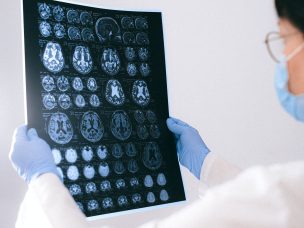Multiple Sclerosis
Frexalimab and CD40L Inhibition in Multiple Sclerosis
A phase II trial confirms the efficacy and safety of frexalimab and its ability to reduce disease activity in patients living with relapsing MS, with considerable benefit compared to placebo. The CD40–CD40L (CD154) costimulatory pathway, which regulates adaptive and innate immune responses, has been implicated in the pathogenesis of multiple sclerosis (MS). Elevated levels of...
Efficacy of Stem Cells vs. Exomes in Multiple Sclerosis
A new preclinical study in an animal model found that stem cells and stem cell-derived exosomes may benefit those living with multiple sclerosis. The study found exomes as a promising emerging therapy with a better safety profile. Multiple sclerosis (MS) is a debilitating autoimmune disease characterized by the progressive destruction of myelin. This demyelination leads...
Multiple Sclerosis Treatment Complications: IFNβ-Linked Thrombotic Microangiopathy
Multiple sclerosis treatment with interferon beta may infrequently cause thrombotic microangiopathy, resulting in acute kidney injury. However, a newly published literature review finds that early identification of the complication and treatment with eculizumab may help prevent end-stage renal disease. Multiple sclerosis (MS) is a prevalent inflammatory demyelinating disorder of the central nervous system, mostly affecting...
Identifying Biomarkers for Multiple Sclerosis Disease Activity and Progress
A cohort study found glial fibrillary acid protein may be a reliable cerebrospinal fluid biomarker for differentiating progressive multiple sclerosis from relapsing disease. Multiple sclerosis (MS) presents a complex challenge in clinical management due to its varied progression patterns and the absence of precise biological markers to predict disease course. Two MS types, relapsing and...
Extended Versus Standard Interval Dosing of Natalizumab in Multiple Sclerosis
A systemic review and meta-analysis found that natalizumab was similarly effective in both standard and extended interval dosing. However, the study also found that extended interval dosing did not improve its safety profile. Multiple sclerosis (MS) is a chronic immune-mediated central nervous system (CNS) disease with poorly understood pathology. However, it is known that immune...
Identifying Multiple Sclerosis Drug Targets With Mendelian Randomization Analysis
An analysis of data from the International Multiple Sclerosis Genetics Consortium identified five proteins that could be targets of future drug therapies for managing progressive multiple sclerosis. Multiple sclerosis (MS) is a prevalent chronic neurological disease affecting young adults, characterized by inflammatory attacks followed by progressive disability. While current therapies primarily target inflammation and relapsing...
COVID-19 Vaccines and NMOSD and MS Risk
COVID-19 may alter NMOSD and MS risk and appears to be related to genetic susceptibility, a systemic review indicates. Multiple sclerosis (MS) is a common central nervous system (CNS) condition with axonal damage, and its pathogenesis is unclear, though much is known about its risk factors. On the other hand, neuromyelitis optica spectrum disorder (NMOSD) is...
Alterations in Signaling and Interactions of Astrocytes in Multiple Sclerosis
A literature review evaluated recent findings regarding changes in signaling modalities and interactions of astrocytes in multiple sclerosis. Multiple sclerosis (MS) is a chronic demyelinating disease of the central nervous system (CNS). Astrocytes, the most abundant CNS glial cells, are critical for CNS health and function and have, therefore, gained attention for investigation in MS. ...
Cognitive Effects of Neurofilament Levels and Brain Atrophy in Multiple Sclerosis
Brain MRI volumetric measurements are a better predictor of cognitive performance than neurofilament light chain levels in multiple sclerosis, according to a recent 10-year follow-up study. Cognitive impairment is an important factor in disability due to multiple sclerosis (MS). The neurofilament light chain (NfL) is a promising biomarker for neuroaxonal damage. Research has correlated increased...
More Medical News














